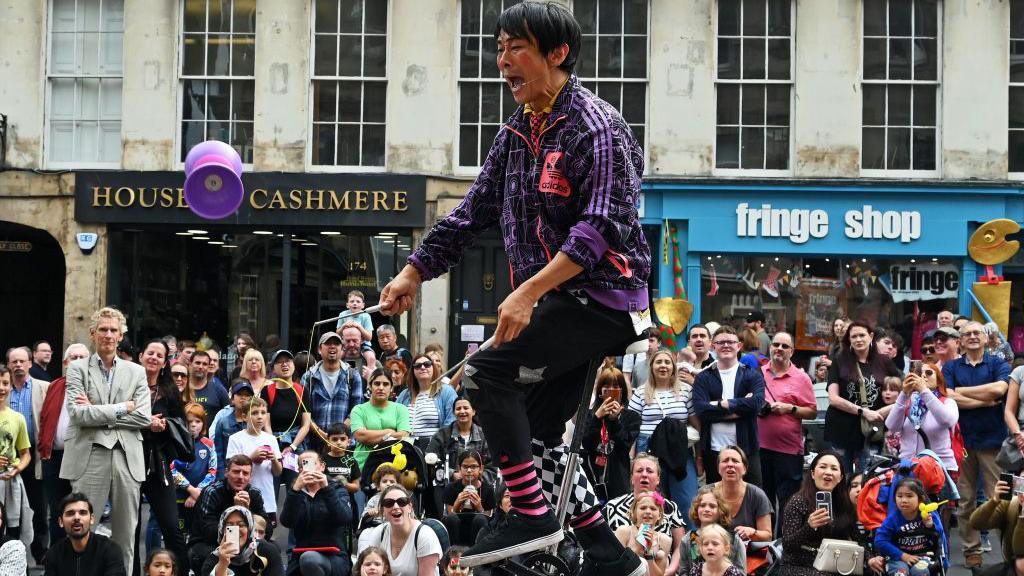The Fringe shows that put accessibility centre stage
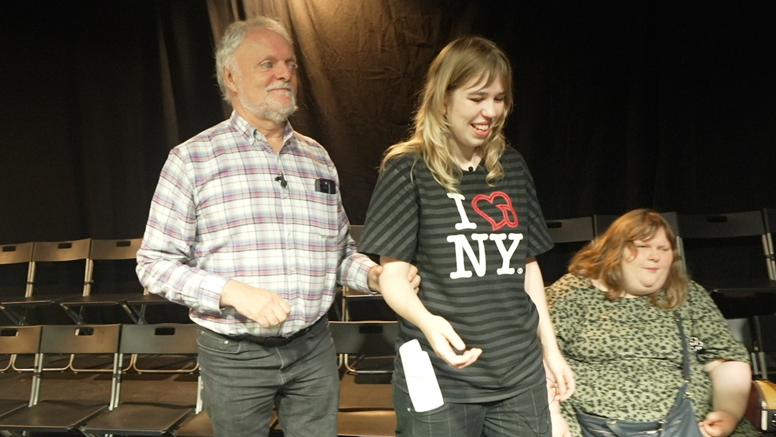
Writer and performer Holly Gifford guides Ian Hamilton round the stage before her show begins
- Published
The Edinburgh Fringe can be a maze for blind and visually-impaired audiences.
With pop-up venues, jam-packed schedules and minimal thought given to access, it often feels like an afterthought, if it's considered at all.
This year, though, one venue is trying something different.
ZOO Playground has teamed up with Extant, the UK's leading professional company of visually impaired artists, to put accessibility centre stage.
What is the mission?
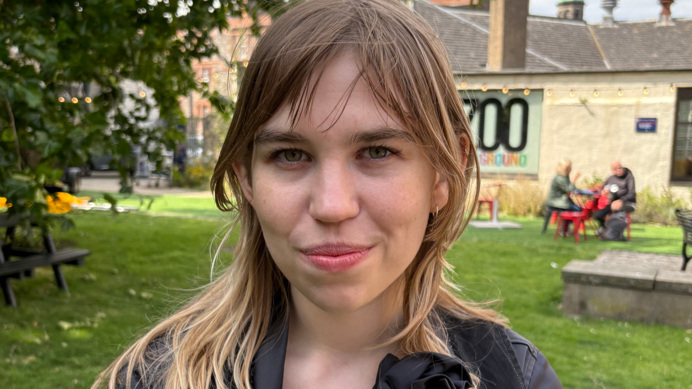
Hollie Gifford takes a hands-on approach with the audience
The Fringe can overwhelm me. It's loud, crowded, and I'm left wondering: will the venue work for me and my guide dog, Major? These thoughts hit me before I even book a ticket.
This year, three shows at ZOO Playground were marked as among the most accessible. I tried one.
I picked Big Little Sister, a solo show by Holly Gifford. Before the 10:35 morning performance, Holly herself took me and other audience members on a touch tour, guiding us around the stage, letting us handle props, feel the layout and even try a prop from the show.
By the time she stepped out to perform, I already had a clear picture of the space, her actions, and captions she uses on a screen.
Because the show was built to be accessible, I didn't need audio description. It flowed without visual reliance.
Making it part of the show
Usually, I'd use a headset for live description. I do welcome it, but it splits your focus, one ear on the live performance, the other on a describer.
This was different. Holly had done the groundwork in advance, so I didn't need that extra layer.
Staff at ZOO had genuinely thought things through.
From arrival to departure, I felt looked after as they clearly had training in how to guide visually-impaired audiences. That's rare.
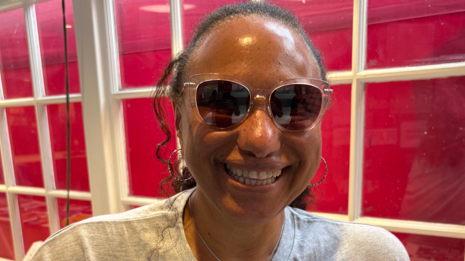
Maria Oshodi says Extant's philosophy is to make accessibility a priority from the start
ZOO Playground, known for emerging artists and smaller productions, took on a challenge this year.
They worked with Extant, the UK's leading professional company of visually impaired artists, to rethink access. Extant is led by Maria Oshodi, a blind theatre director and playwright.
She says the aim is long-term change: "We're showing that accessibility can be built in from the start, not tacked on at the end. Once you work this way, you don't go back."
Three headline shows, Big Little Sister, Small Town Boys, and I Think It Could Work, are part of Extant's Enhance programme.
Each includes a touch tour, live programme notes, and visual awareness training for staff and creators.
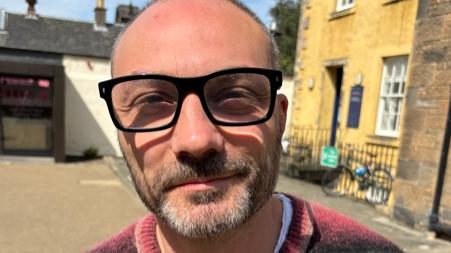
ZOO's artistic director James Mackenzie is looking to break down barriers
Other shows were encouraged to include audio introductions or describe their stage setting at the start where possible.
"This is about breaking down barriers," says James Mackenzie, ZOO's artistic director.
"We can't alter buildings or knock down walls, most spaces are temporary, but we can change attitudes and the way we operate."
'It's just a different way to tell the story'
Holly Gifford's show, Big Little Sister, is based on her relationship with her older brother Patrick, who is deafblind, has cerebral palsy, and severe learning disabilities.
"He's my big brother, but in a lot of ways I've had to be the one taking responsibility," she says. "That's where the title comes from."
She wanted the show to speak to people who actually live with disability, not just those watching from the outside.
"I didn't want to make something that makes non-disabled audiences feel moved or uplifted, but doesn't change anything. This show is about telling the truth of our story."
Working with Extant helped her shape the experience for blind audiences.
"We looked at what parts needed describing and how to do it in a way that felt like storytelling, not a bolt-on. It wasn't a chore. It made the show better."
The performance includes pre-recorded lines from Patrick's communication aid, and Holly plays both herself and her dad, complete with a full drag beard, one of the props she includes in her touch tour.
She says making her show accessible didn't cost a fortune or require a technical overhaul.
"People assume it's going to be expensive or really difficult. It's not. It just takes a bit of effort and a willingness to try."
'It shouldn't be the exception'
As a blind audience member, this felt different, not just because I could follow the show without strain, but because someone had thought about what I might need. It's rare at the Fringe to feel that way.
What's happening at ZOO Playground shouldn't be a one-off. If a small venue can pull this off at the busiest arts festival in the world, there's no reason others can't do the same.
- Published1 August
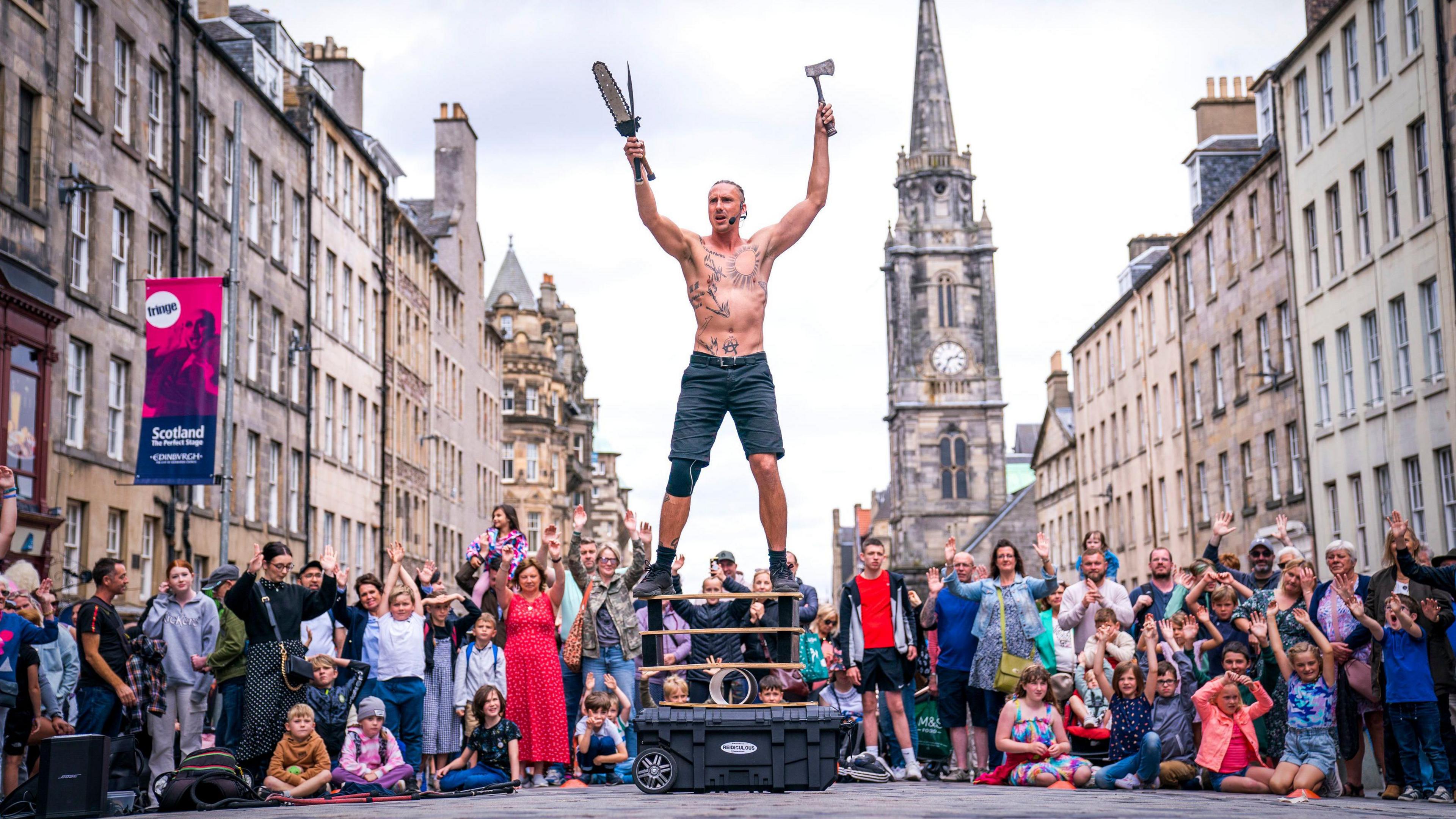
- Published3 June
